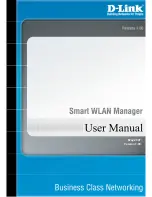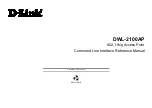
PMP 450 Planning Guide
Glossary
Notifications
This section contains notifications of compliance with the radio regulations that are enforced in various regions.
PMP 450 regulatory compliance
The PMP 450 complies with the regulations that are enforced in the USA and Canada. The relevant notifications are
specified in this section.
PMP 450 FCC and IC notification
U.S. Federal Communication Commission (FCC) and Industry Canada (IC) Notification.
This system has achieved Type Approval in various countries around the world. This means that the system has
been tested against various local technical regulations and found to comply. The frequency band in which the
system operates is ‘license exempt’ and the system is allowed to be used provided it does not cause interference.
The licensing authority does not guarantee protection against interference from other products and installations.
This device complies with part 15 of the US FCC Rules and Regulations and with RSS-210 of Industry Canada.
Operation is subject to the following two conditions: (1) This device may not cause harmful interference, and (2)
This device must accept any interference received, including interference that may cause undesired operation. In
Canada, users should be cautioned to take note that high power radars are allocated as primary users (meaning they
have priority) of the 5650 – 5850 MHz spectrum and these radars could cause interference and/or damage to
license-exempt local area networks (LELAN).
Le présent appareil est conforme aux CNR d'Industrie Canada applicables aux appareils radio exempts de licence.
L'exploitation est autorisée aux deux conditions suivantes : (1) l'appareil ne doit pas produire de brouillage, et (2)
l'utilisateur de l'appareil doit accepter tout brouillage radioélectrique subi, même si le brouillage est susceptible d'en
compromettre le fonctionnement.
Under Industry Canada regulations, this radio transmitter may only operate using an antenna of a type and
maximum (or lesser) gain approved for the transmitter by Industry Canada. To reduce potential radio interference to
other users, the antenna type and its gain should be so chosen that the equivalent isotropically radiated power
(EIRP) is not more than that necessary for successful communication.
Conformément à la réglementation d'Industrie Canada, le présent émetteur radio peut fonctionner avec une antenne
d'un type et d'un gain maximal (ou inférieur) approuvé pour l'émetteur par Industrie Canada. Dans le but de réduire
les risques de brouillage radioélectrique à l'intention des autres utilisateurs, il faut choisir le type d'antenne et son
gain de sorte que la puissance isotrope rayonnée équivalente (PIRE) ne dépasse pas l'intensité nécessaire à
l'établissement d'une communication satisfaisante.
This equipment has been tested and found to comply with the limits for a Class B digital device, pursuant to Part 15
of the US FCC Rules and with RSS-210 of Industry Canada. These limits are designed to provide reasonable
protection against harmful interference in a residential installation. This equipment generates, uses, and can radiate
radio-frequency energy and, if not installed and used in accordance with these instructions, may cause harmful
interference to radio communications. If this equipment does cause harmful interference to radio or television
reception, which can be determined by turning the equipment on and off, the user is encouraged to correct the
interference by one or more of the following measures:
3-42
pmp-0047 (March 2014)
Summary of Contents for PMP 450
Page 1: ...Cambium PMP 450 Planning Guide System Release 13 1 ...
Page 13: ...PMP 450 Planning Guide pmp 0047 March 2014 1 3 ...
Page 42: ...PMP 450 Planning Guide Figure 14 Custom Frequency tab of the SM 1 32 pmp 0047 March 2014 ...
Page 58: ...PMP 450 Planning Guide Figure 16 AP web based management screenshot 1 48 pmp 0047 March 2014 ...
Page 82: ...PMP 450 Planning Guide 1 72 pmp 0047 March 2014 ...
Page 155: ...PMP 450 Planning Guide pmp 0047 March 2014 1 145 ...
















































